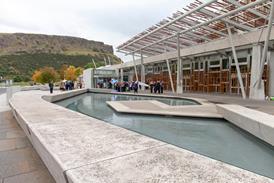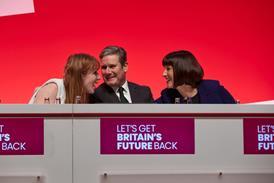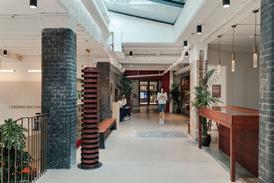Conservative party loses its majority - and housing minister - as Labour exceeds expectations
Jeremy Corybn has called for Theresa May to resign after the Conservative party lost its majority in the general election, causing a hung parliament.
The Conservatives are still the largest party in parliament, on course for 318 seats to Labour’s potential 261, but Theresa May’s decision to call a snap election to consolidate the party’s majority as the country enters Brexit talks has backfired. In the 2015 election, the Tories took 331 seats and Labour 232.
This morning May said she would attempt to form a minority government with the backing of the Democratic Unionist Party (DUP) and that she intended to remain as prime minister.
During the night, as she retained her Maidenhead seat Theresa May said: “At this time more than anything else this country needs a period of stability and if as the indications have shown, if this is correct, that the Conservative party has won the most seats and probably the most votes then its will be incumbent on us to ensure that we have that period of stability and that is exactly what we will do.”
Conservative MP Anna Soubry, who retained her seat in Broxtowe in Nottinghamshire said May would now have to “consider her position”.
One of the casualties last night was housing minister Gavin Barwell who was unseated in Croydon Central.
Another casualty was former Liberal Democrat leader Nick Clegg who lost his Sheffield Hallam seat to the Labour party candidate.
In Scotland the SNP retained its majority, but lost 21 seats as the Conservatives made big gains, including the Aberdeenshire East seat of Alex Salmond.
However, the night saw the Lib Dems gain around five seats to take it to a total of 12 seats and the return of Vince Cable
For construction, the result will likely raise concerns over the effect a period of instability will have on investment.
The pound had already seen its worst fall since January as the exit polls predicted a hung parliament last night and fell again this morning.
The result means that the Conservative government will remain in office until it is decided who will be able to form a government. Usually, the party with the most seats is described as the winner, but to actually form a government they will need to strike some form of a deal with smaller parties.
One scenario is that a deal is done to form a coalition government, as happened in 2010 when the Conservatives led by David Cameron joined forces with the Nick Clegg-led Liberal Democrats. Another is for a looser arrangement, where parties agree to support each other on particular votes. If the Conservatives are unable to do either of these, this raises the prospect of a coalition led by Jeremy Corbyn’s Labour Party.












10 Readers' comments